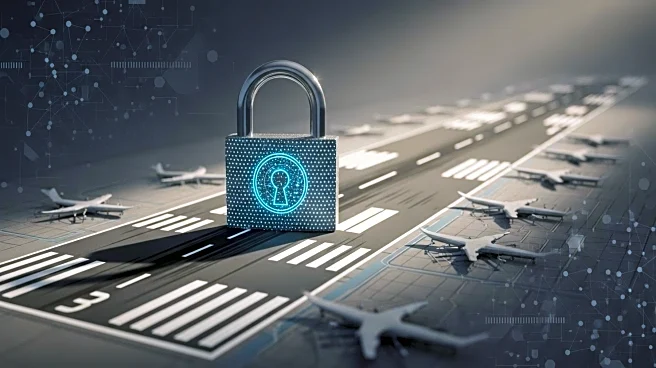What's Happening?
The UK's National Crime Agency has arrested a man in West Sussex in connection with a ransomware attack that caused significant flight delays across Europe. The attack targeted the Multi-User System Environment (MUSE) software used by airports, affecting major hubs like Heathrow and Berlin's Brandenburg. While larger airlines managed to switch to backup systems, smaller providers resorted to manual check-ins. The ransomware tool used in the attack is believed to be Hardbit or Loki, both Ransomware-as-a-Service tools typically used in smaller scale attacks. The suspect, described as a man in his forties, has been released on conditional bail as the investigation continues.
Why It's Important?
The incident underscores the vulnerability of critical infrastructure to cyberattacks, highlighting the need for enhanced cybersecurity measures in the aviation industry. The disruption caused by the attack affected numerous passengers and airlines, demonstrating the potential for significant economic and operational impacts. The use of Ransomware-as-a-Service tools indicates a growing trend of accessible cyberattack methods, posing challenges for security professionals in preventing and mitigating such threats. The arrest may lead to further insights into the attack's origins and the broader network of cybercriminals involved.
What's Next?
As the investigation progresses, authorities may uncover more details about the attack's execution and the suspect's connections. Airports and airlines may need to review and strengthen their cybersecurity protocols to prevent future incidents. The aviation industry could see increased collaboration with cybersecurity experts to develop more resilient systems and response strategies. The incident may prompt regulatory bodies to consider new guidelines and standards for cybersecurity in critical infrastructure sectors.
Beyond the Headlines
The attack raises questions about the ethical implications of using Ransomware-as-a-Service tools and the responsibility of service providers in preventing misuse. The incident may influence public perception of cybersecurity risks in travel and transportation, potentially affecting consumer confidence. Long-term, the event could drive innovation in cybersecurity solutions tailored to the unique needs of the aviation industry, fostering greater collaboration between technology providers and security experts.










